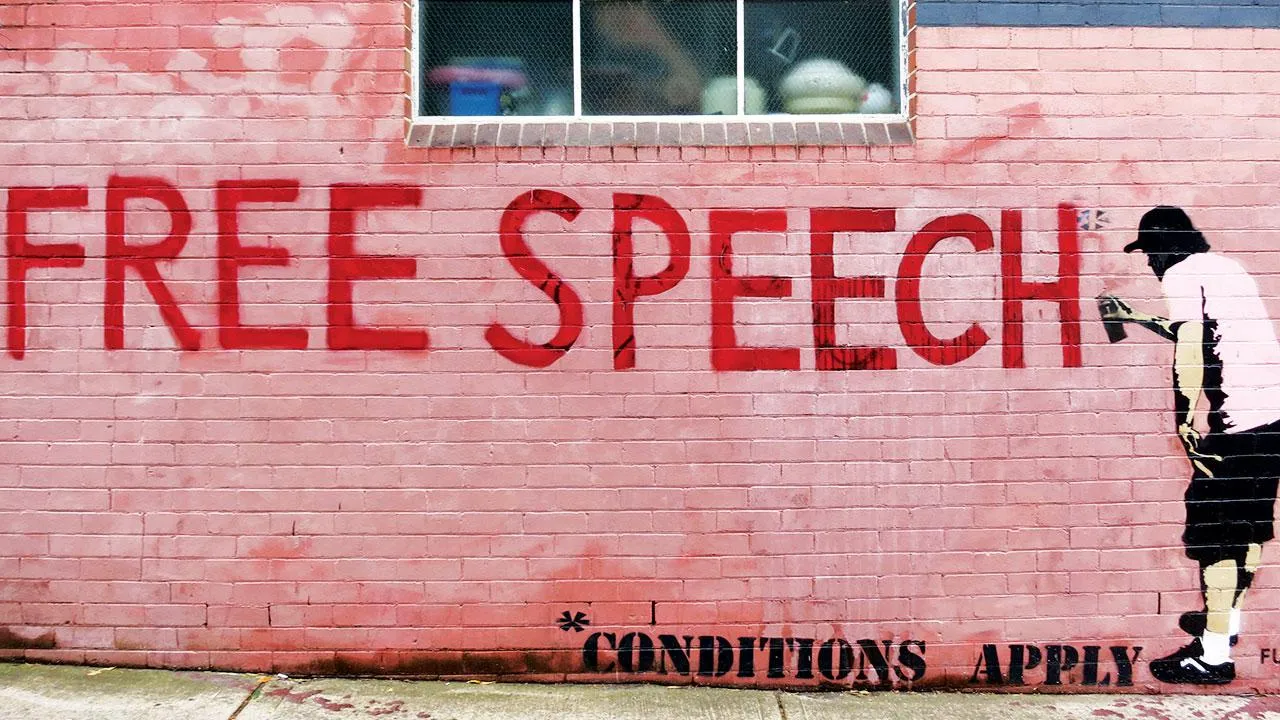Table of Contents
The ongoing war between the US Security State and the First Amendment is perhaps the most underreported development of the 21st century. Now, Missouri v Biden may bring it to the Supreme Court.
Just two decades ago, the internet promised liberation as dictatorships would cave to the emerging swell of information. That was the hope, at least.
“There’s no question China has been trying to crack down on the internet,” President Clinton said in 2000. “Good luck. That’s sort of like trying to nail Jell-O to the wall.”
That optimism did not come to fruition. Instead of Westernizing the Orient, technology laid the foundation for the US Security State to pursue unprecedented social control.
At first, the conflict appeared to be between rank-and-file military members and transgressive cyber actors. Julian Assange and Edward Snowden seemed like mere hackers, not harbingers for the impending suspension of American liberty.
The battle suddenly became a civilizational struggle in 2020. A highly efficient technocracy declared war against the Bill of Rights. The US Security State shut down American society, eradicated due process, and captured the public health apparatus. The CIA bribed scientists to cover up the origins of Covid, and the Department of Homeland Security dictated what Americans could and could not see in their newsfeeds. The FBI helped banish the country’s oldest newspaper from Twitter for reporting on its preferred candidate’s son.
When Clinton made his “Jell-O” comment, few of us could imagine that we’d live in such a country. We trusted our courts and our elected government to protect us. We thought the rule of law was sacrosanct. We were wrong.
Now, however, the judiciary has the opportunity to reclaim the First Amendment from the tyranny of the Security State in Missouri v Biden.
Missouri v Biden and the CISA Injunction
Tuesday, the Fifth Circuit reinstated an injunction against CISA, an agency in the Department of Homeland Security, that prohibits its agents from colluding with social media companies to promote censorship of any kind.
The case demonstrates how far the United States has strayed from its former free speech ethos. CISA held ongoing meetings with social media platforms to “push them to adopt more restrictive policies on censoring election-related speech,” according to the Fifth Circuit. This included criticism of lockdowns, vaccines, and the Hunter Biden laptop. Through a process known as “switchboarding,” CISA officials dictated to Big Tech platforms what content was “true” or “false,” which became Orwellian euphemisms for acceptable and prohibited speech.
CISA’s leaders reveled in their usurpation of the First Amendment. They overturned hundreds of years of free speech protections, appointing themselves the arbiters of truth. Without freedom of “election-related speech,” we no longer live in a democracy. They pursued a faceless dictatorship.
They sought to eradicate dissent surrounding the policies that they imposed. CISA had been responsible for dividing the workforce into categories of “essential” and “nonessential” in March 2020. Hours later, the order became the basis for the country’s first “stay-at-home” order, a process that quickly spiraled into a previously unimaginable assault on Americans’ civil liberties.
CISA betrayed the country’s founding principle. A group of unelected bureaucrats hijacked American society without ever having a vote cast in their names. They disregarded the First Amendment, due process, and elected government in their pursuit of power.
The Framers understood that liberty relied on the free flow of information. They were well aware of the dangers of widespread lies and an incendiary press corps, but tyranny presented a far greater risk to society. Government could not be trusted to wield power over the minds of men, so they enshrined freedom of press, worship, and speech in our Constitution.
The Security State unwound those liberties. White House officials used the power of the federal government to suppress dissent. The Biden Administration launched an interagency attack on free speech. The Covid regime’s coup d’etat continued unimpeded until Judge Terry Doughty’s July 4 injunction.
Now, the Fifth Circuit has remedied its previous error by reinstating the injunction against CISA. The case may now head to the Supreme Court, where the Justices would have the opportunity to dismantle the technocratic censorship operation at the heart of the Covid response.
The war is far from won. Julian Assange remains in jail alongside terrorists for publishing news reports that undermined the Security State’s deceit surrounding the War on Terror. Edward Snowden is banished from his homeland for exposing the lies of James Clapper.
President Biden’s ‘misinformation’ crusade shows no signs of retreat entering the 2024 election cycle. Social media is still censored. Your Google results are still gamed at the behest of powerful state actors. YouTube has proudly announced that it will censor content based on the diktats of the World Health Organization. Say the wrong thing on LinkedIn and you are toast.
Among the large players, only X, formerly known as Twitter, is eschewing routine takedowns of speech deemed oppositional to regime priorities. That is truly only because one man had the means to buy and the drive to liberate it from the Censorship Industrial Complex, for now.
Tuesday’s decision reaffirmed what the Supreme Court called the “bedrock principle underlying the First Amendment” in 1989: “that the government may not prohibit the expression of an idea simply because society finds the idea itself offensive or disagreeable.”
Rebuilding from the wreckage of Covid will require reclaiming those fundamental pillars of American society. The freedom to speak was not the first right earned by a people in revolt against ancient-world forms of statism but it might be the most essential. That’s why it is instantiated in the very first amendment to the Bill of Rights.
If the regime can control the public mind, they can control everything else too. A loss here is a loss everywhere.
Published under a Creative Commons Attribution 4.0 International License
For reprints, please set the canonical link back to the original Brownstone Institute Article and Author.








